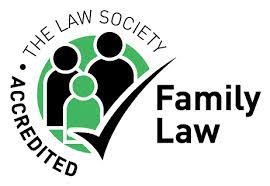By Adam Hazell, Legal Assistant, Oliver & Co Solicitors
Many people believe that the route to qualification as a Solicitor is a set path that everyone must follow. On the contrary, in modern day, there has been an influx in different methods that individuals can take to become a fully qualified Solicitor, or alternative qualification to practice law. For example, routes such as a Chartered Legal Executive have become increasing popular in previous years, where you can gain invaluable experience and ‘earn while you learn’. A Chartered Legal Executive job title holds just as much weight as a Solicitor. A Chartered Legal Executive can have their own clients, and have control over their own files without needing to do the traditional Legal Practice Course or Training Contract.
Another route that an individual can take into qualification, is by undertaking the apprenticeship route to becoming a Solicitor. Much like a Chartered Legal Executive, by completing an apprenticeship, you can ‘earn while you learn’ and can become exposed to an infinitive number of different circumstances within your role, which can arguably help you become a more well-rounded Solicitor a lot quicker.
A bit about me
My name is Adam, and I joined Oliver and Co Solicitors in August 2022 after completing my A-Levels in June 2022. I started as a Post Completion Assistant in the Conveyancing department, which was an ideal first role for someone like me who had no experience in the Legal industry, as I became exposed to a wide variety of legal forms and documents whilst dealing with the registration of property.
In October 2023, I moved to the Wills and Probate department as a Legal Assistant, where I am now responsible for drafting Simple Wills, Lasting Powers of Attorney, Declarations of Trusts along with aiding in Estate Administration Matters. Alongside my role, I am also a Paralegal Apprentice with the view to qualifying as a Paralegal in November 2024.

Paralegal apprenticeship – What is it?
There are 6 modules to complete throughout the two years of the apprenticeship, the first two being “Introduction to Law for Paralegals” which included things such as the nature and classification of law, the law making process, contract law, the general principles of the tort of negligence and “Legal Ethics”. These two modules were compulsory as they set a basic legal understanding and foundation needed to progress with the rest of the apprenticeship.
Once I completed these modules, I then moved onto my optional modules which were Wills and Succession and Criminal Litigation which I have completed, and then I have Civil Litigation and Conveyancing yet to complete. At the end of each module, you have to complete an assignment in which you have four weeks to complete, and you cannot progress through the apprenticeship until you have passed the assignment.
The Paralegal Apprenticeship I am currently undertaking, is through an online company called Datalaw. At the end of the apprenticeship, I will need to complete an End Point Assessment along with providing evidence of completing the Paralegal Standards set out by the National Association of Licensed Paralegal (NALP). This includes things such as providing evidence that you understand client confidentiality, for example. Along with collecting evidence, I also need to complete off-the-job hours, which is when I spend time during my working hours to complete tasks or learning that is separate from my job role. This can include things such as simply completing set work provided by Datalaw, shadowing other members of staff, attending meetings and watching webinars to improve my knowledge.
What comes next?
Once I have successfully completed the Paralegal Apprenticeship, I will hopefully be fortunate enough to be able to enrol onto a Solicitor Apprenticeship course. This course lasts around 5 to 6 years, with around 4 years of study, and then completion of the Solicitors Qualifying Exam (SQE).
The SQE is the new route that up-and-coming legal students will take part in, to become a qualified Solicitor. This exam replaces the traditional route to qualifying as a Solicitor, as law students will no longer need to complete the Legal Practice Course and await a Training Contract. There are two parts to the SQE being SQE1 and SQE2. The SQE1 is a test of functioning legal knowledge (FLK). This exam has two parts FLK1 and FLK2 and both are multiple choice exams. The SQE2 is an assessment of practical legal skills which also has two parts, which includes oral assessments and written assessments. The SQE is a very new route to qualification, as the first cohort sat the SQE1 in November 2021.
It is important to note that before you can complete the SQE, you must have two years qualifying work experience, and must also meet the SRA’s character and suitability requirements.
Oliver & Co are committed to supporting new talent in the legal sector via different routes into the legal profession. I am certainly enjoying the variety of tasks that I do and having the opportunity to learn on the job. The practical experience has been invaluable in developing my skills as a legal professional.










